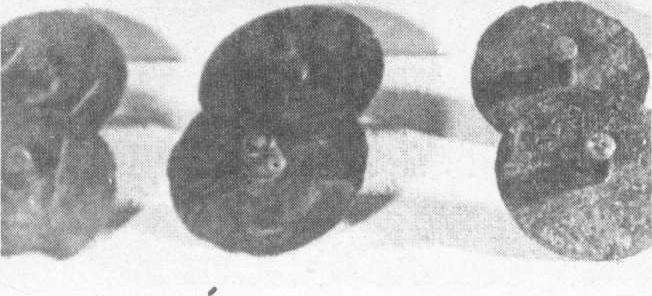雅典奴隶主民主政治yadian nulizhu minzhu zhengzhi
公元前6世纪至前4世纪存在于雅典的一种仅限于公民集体成员的民主政体。马克思主义史学界称之为奴隶主民主政治。现代西文中的民主(德摩克拉西,democracy) 一词由古希腊文 “德摩克拉提亚”(δymokpiα) 衍化而来。古希腊文中的 “德摩”(δymos) 有“人民”之意, “克拉托斯” (kp os) 意“主权”、“权力”。两词合成一个即 “人民主权” (民主)。作为一种政体,它可能最早出现于雅典,是雅典平民与贵族长期斗争的产物。因而“民主”一词最早是在雅典得到使用的。希罗多德的 《历史》提到这个词(《历史》6.43)。雅典民主制思想的根源可追溯到原始氏族民主的观念。约在公元前8世纪贵族政治取代王政, 改变了政体直接发展为君主专制的方向。公元前594年, 梭伦在平民推动下实行改革,解放负债平民,促进了包括中小土地所有者在内的公民集体的形成、巩固,提高了公民大会在政治决策中的地位,建立公民普遍有权参与的民众法庭以及400人议事会,为民主制奠定扎实的基础。公元前509年的克里斯提尼改革, 以地域原则划分政区, 建立抽签选举产生的500人议事会和实行陶片放逐法, 进一步削弱贵族势力, 民主制得以确立。公元前461年, 厄菲阿尔特民主改革彻底废除贵族会议政治特权, 完善民主制。至伯利克里时代以及前4世纪的大部分时期, 民主制已相当成熟, 包括如下主要内容: 最高立法、执法与行政权力机构是公民大会,每13天举行一次。公民均在大会上有投票权、辩论权、提出动议权。所有有关国家的重大事务,包括重大案件均由大会以多数票表决。附属公民大会的常设机构是500人议事会, 职能是在公民大会休会期间主持国政, 为大会准备提案, 监督各级公职人员。议员从30岁以上公民中抽签选出。日常司法机构为民众法庭,审判员也由30岁以上公民中抽签产生。此外,还有隶属公民大会和500人议事会的众多具体行政、军事机构,多由10人组成,如将军会议、公卖员、市场监督等。成员均通过抽签或投票产生,无财产资格限制,无职业官僚。某些低级公职,如记录、警察等则由奴隶充任。为保证公民下层积极参加公共生活, 国家对许多公职、甚至观看文艺演出都发放津贴。这是建立在社会上一部分人 (公民) 对另一部人 (奴隶和外邦移居者) 以及附属国压迫、剥削基础上的有限民主制。但在古代各地专制横行的条件下毕竟是较先进的政体,具有深刻现实意义和深远历史意义。它对其他邦民主制的确立有重大影响, 对雅典政治、经济、文化发展有极大促进作用。古希腊众多最杰出的哲学家、戏剧家、历史家、美术家、修辞家等等或是雅典人, 或长期在雅典生活, 这无疑是公民民主生活的结果。在文艺复兴和启蒙时代, 雅典民主思想曾被资产阶级思想家发掘出来, 成为反封建的锐利武器。
os) 意“主权”、“权力”。两词合成一个即 “人民主权” (民主)。作为一种政体,它可能最早出现于雅典,是雅典平民与贵族长期斗争的产物。因而“民主”一词最早是在雅典得到使用的。希罗多德的 《历史》提到这个词(《历史》6.43)。雅典民主制思想的根源可追溯到原始氏族民主的观念。约在公元前8世纪贵族政治取代王政, 改变了政体直接发展为君主专制的方向。公元前594年, 梭伦在平民推动下实行改革,解放负债平民,促进了包括中小土地所有者在内的公民集体的形成、巩固,提高了公民大会在政治决策中的地位,建立公民普遍有权参与的民众法庭以及400人议事会,为民主制奠定扎实的基础。公元前509年的克里斯提尼改革, 以地域原则划分政区, 建立抽签选举产生的500人议事会和实行陶片放逐法, 进一步削弱贵族势力, 民主制得以确立。公元前461年, 厄菲阿尔特民主改革彻底废除贵族会议政治特权, 完善民主制。至伯利克里时代以及前4世纪的大部分时期, 民主制已相当成熟, 包括如下主要内容: 最高立法、执法与行政权力机构是公民大会,每13天举行一次。公民均在大会上有投票权、辩论权、提出动议权。所有有关国家的重大事务,包括重大案件均由大会以多数票表决。附属公民大会的常设机构是500人议事会, 职能是在公民大会休会期间主持国政, 为大会准备提案, 监督各级公职人员。议员从30岁以上公民中抽签选出。日常司法机构为民众法庭,审判员也由30岁以上公民中抽签产生。此外,还有隶属公民大会和500人议事会的众多具体行政、军事机构,多由10人组成,如将军会议、公卖员、市场监督等。成员均通过抽签或投票产生,无财产资格限制,无职业官僚。某些低级公职,如记录、警察等则由奴隶充任。为保证公民下层积极参加公共生活, 国家对许多公职、甚至观看文艺演出都发放津贴。这是建立在社会上一部分人 (公民) 对另一部人 (奴隶和外邦移居者) 以及附属国压迫、剥削基础上的有限民主制。但在古代各地专制横行的条件下毕竟是较先进的政体,具有深刻现实意义和深远历史意义。它对其他邦民主制的确立有重大影响, 对雅典政治、经济、文化发展有极大促进作用。古希腊众多最杰出的哲学家、戏剧家、历史家、美术家、修辞家等等或是雅典人, 或长期在雅典生活, 这无疑是公民民主生活的结果。在文艺复兴和启蒙时代, 雅典民主思想曾被资产阶级思想家发掘出来, 成为反封建的锐利武器。

雅典人投票用的金属小圆盘